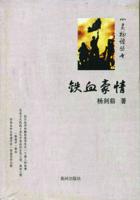Such a situation could not be successfully encountered save by a policy aimed distinctly at accomplishing a redress of popular grievances.But such a policy, President Cleveland failed to conceive.In his inaugural address, he indicated in a general way the policy pursued throughout his term when he said, "I shall to the best of my ability and within my sphere of duty preserve the Constitution by loyally protecting every grant of Federal power it contains, by defending all its restraints when attacked by impatience and restlessness, and by enforcing its limitations and reservations in favor of the states and the people." This statement sets forth a low view of governmental function and practically limits its sphere to the office of the policeman, whose chief concern is to suppress disorder.Statesmanship should go deeper and should labor in a constructive way to remove causes of disorder.
An examination of President Cleveland's state papers show that his first concern was always to relieve the Government from its financial embarrassments; whereas the first concern of the people was naturally and properly to find relief from their own embarrassments.In the last analysis, the people were not made for the convenience of the Government, but the Government was made for the convenience of the people, and this truth was not sufficiently recognized in the policy of Cleveland's administration.His guiding principle was stated, in the annual message, December 3, 1894, as follows: "The absolute divorcement of the Government from the business of banking is the ideal relationship of the Government to the circulation of the currency of the country." That ideal, however, is unattainable in any civilized country.The only great state in which it has ever been actually adopted is China, and the results were not such as to commend the system.The policy which yields the greatest practical benefits is that which makes it the duty of the Government to supervise and regulate the business of banking and to attend to currency supply; and the currency troubles of the American people were not removed until eventually their Government accepted and acted upon this view.
Not until his message of December 3, 1894, did President Cleveland make any recommendation going to the root of the trouble, which was, after all, the need of adequate provision for the currency supply.In that message, he sketched a plan devised by Secretary Carlisle, allowing national banks to issue notes up to seventy-five per cent of their actual capital and providing also, under certain conditions, for the issue of circulating notes by state banks without taxation.This plan, he said, "furnishes a basis for a very great improvement in our present banking and currency system." But in his subsequent messages, he kept urging that "the day of sensible and sound financial methods will not dawn upon us until our Government abandons the banking business." To effect this aim, he urged that all treasury notes should be "withdrawn from circulation and canceled," and he declared that he was "of opinion that we have placed too much stress upon the danger of contracting the currency." Such proposals addressed to a people agonized by actual scarcity of currency were utterly impracticable, nor from any point of view can they be pronounced to have been sound in the circumstances then existing.Until the banking system was reformed, there was real danger of contracting the currency by a withdrawal of treasury notes.President Cleveland was ****** a mistake to which reformers are prone; he was taking the second step before he had taken the first.The realization on the part of others that his efforts were misdirected not only made it impossible for him to obtain any financial legislation but actually fortified the position of the free silver advocates by allowing them the advantage of being the only political party with any positive plans for the redress of popular grievances.Experts became convinced that statesmen at Washington were as incompetent to deal with the banking problems as they had been in dealing with reconstruction problems and that, in like manner, the regulation of banking had better be abandoned to the States.A leading organ of the business world pointed out that some of the state systems of note issue had been better than the system of issuing notes through national banks which had been substituted in 1862; and it urged that the gains would exceed all disadvantages if state banks were again allowed to act as sources of currency supply by a repeal of the government tax of ten per cent on their circulation.But nothing came of this suggestion, which was, indeed, a counsel of despair.It took many years of struggle and more experiences of financial panic and industrial distress to produce a genuine reform in the system of currency supply.
President Cleveland's messages suggest that he made up his mind to do what he conceived to be his own duty regardless of consequences, whereas an alert consideration of possible consequences is an integral part of the duties of statesmanship.
He persevered in his pension vetoes without ****** any movement towards a change of system, and the only permanent effect of his crusade was an alteration of procedure on the part of Congress in order to evade the veto power.Individual pension bills are still introduced by the thousand at every session of Congress, but since President Cleveland's time all those approved have been included in one omnibus bill, known as a "pork barrel bill,"which thus collects enough votes from all quarters to ensure passage.
President Cleveland found another topic for energetic remonstrance in a system of privilege that had been built up at the expense of the post-office department.Printed matter in the form of books was charged eight cents a pound, but in periodical form only one cent a pound.This discrimination against books has had marked effect upon the quality of American literature, lowering its tone and encouraging the publication of many cheap magazines.President Cleveland gave impressive statistics showing the loss to the Government in transporting periodical publications, "including trashy and even harmful literature."Letter mails weighing 65,337,343 pounds yielded a revenue of $60,624,464.Periodical publications weighing 348,988,648 pounds yielded a revenue of $2,996,403.Cleveland's agitation of the subject under conditions then existing could not, however, have any practical effect save to affront an influential interest abundantly able to increase the President's difficulties by abuse and misrepresentation.















